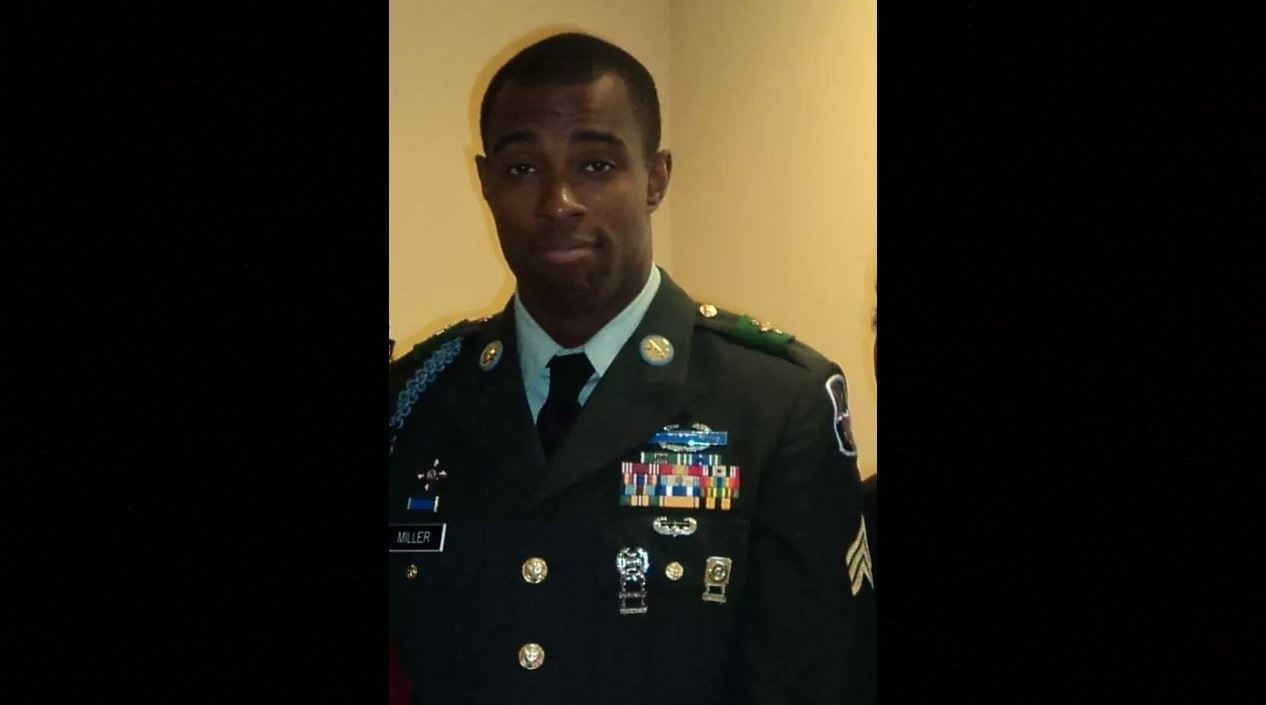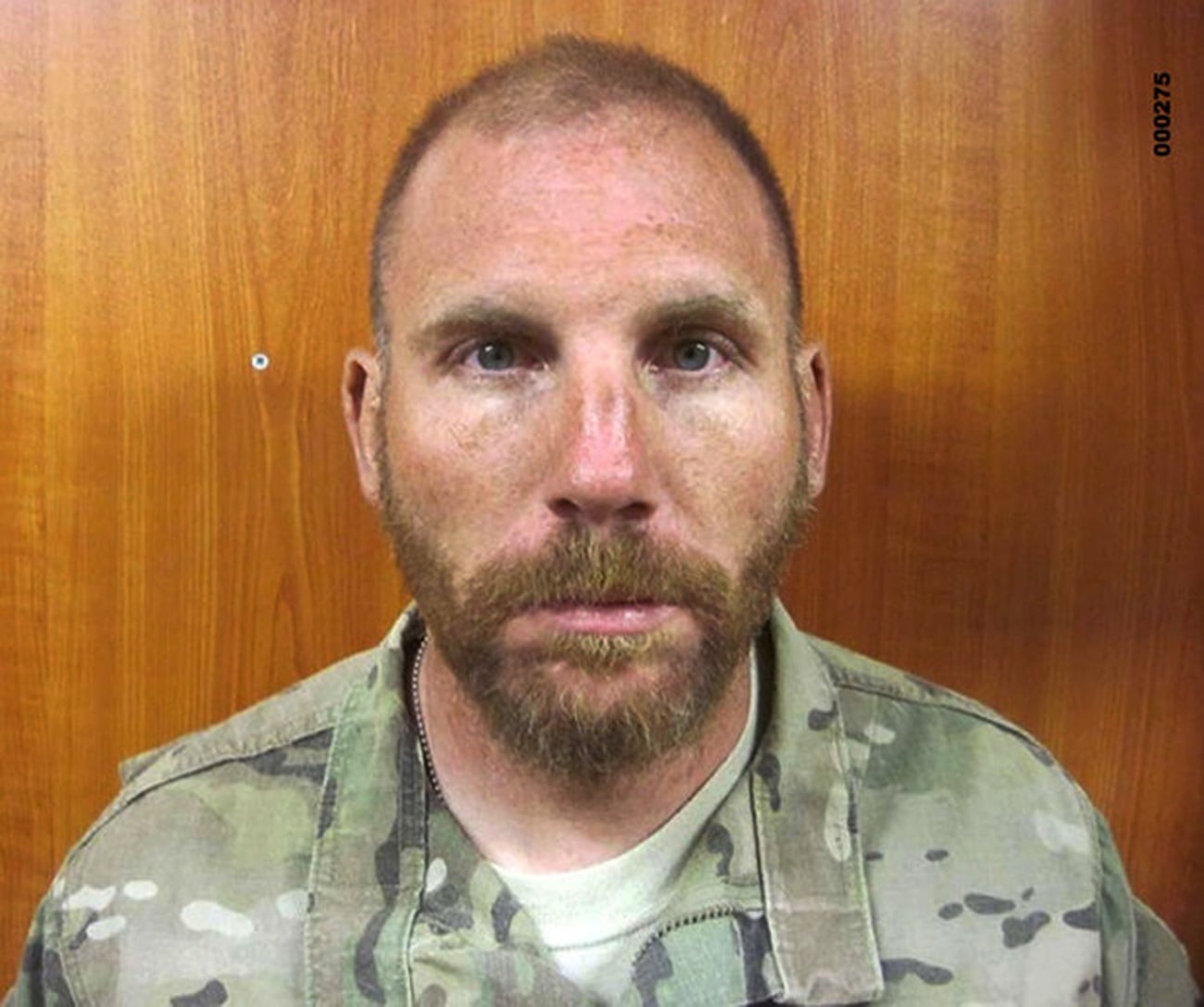Attorneys are seeking a new trial in civilian court for the soldier convicted of the 2012 Kandahar massacre based largely on allegations that he was under the effects of an anti-malarial drug that induced psychosis at the time of the murders.
The petition for a civilian trial comes after former Army Staff Sgt. Robert Bales, 45, exhausted his appeals through the military justice system.
Now, Bales’ lawyers are using a federal statute that allows convicted service members to challenge their court martial findings in civilian court, according to John N. Maher, one of Bales’ attorneys and a former Army judge advocate general.
During Bales’ military career — which included four combat tours between 2003 and 2012 — he was given the anti-malarial drug mefloquine, which is known to have caused mental health problems in some patients, his attorneys wrote in a petition filed earlier this week in U.S. federal court.
In the case of Bales, the drug had “long-lasting adverse psychiatric effects,” including “symptoms of psychosis and tendencies to engage in violence,” the petition reads.
Bales pleaded guilty in 2013 to avoid the death penalty for the slayings of 16 Afghan civilians during nighttime raids in Panjwai district, Kandahar province, on March 11, 2012.
The atrocity was one of the worst in the war, triggering demonstrations against the U.S. presence in Afghanistan and gifting propaganda for Taliban insurgents.
But during his trial, the fact that Bales took mefloquine was not presented to the court or to a sanity board to determine whether he was mentally fit to even enter a guilty plea, Maher said.
“Before they sent the case to the death penalty, they should have put the mefloquine issue in front of the sanity board and that never happened,” Maher told Army Times. “The Army Court of Criminal Appeals had this stuff and we asked them to send it back to a trial judge."
As part of his sentencing agreement in 2013, Bales admitted to using steroids during the deployment. He also admitted to getting drunk on Camp Belambai prior to the murders, which involved slaying men, women and children, then setting their corpses on fire.
Those deaths, while not in dispute, should be understood within the context of Bales’ compromised mental state, his attorneys argued.
“We don’t necessarily believe that the court should send [Bales] home,” Maher said. “Instead, what we do believe for sure is that [Bales] should have a new sanity hearing, plea and all of that.”

“Big picture is: we don’t know if Bales is guilty or not, but what we do know is this information should have been there," Maher added.
Remington Nevin, a former Army physician and epidemiologist who consults on the adverse effects of anti-malarial drugs, testified in sworn statements that Bales was likely under the symptoms of psychosis at the time of the murders.
“It is likely that Bales did in fact experience visual hallucinations of flashing lights ... during his guard shift the evening prior to the incident in question,” Nevin wrote in an affidavit provided to Army Times.
“It is also my opinion that it is likely that SSG Bales’ visual hallucinations of flashing lights were accompanied by paranoia and bizarre, persecutory delusions that these constituted a highly dangerous threat, and that these perceptual disturbances, which are fully consistent with the known lasting adverse effects of mefloquine intoxication, compelled SSG Bales to ‘take action,’” Nevin’s affidavit reads.
RELATED

Bales was likely first exposed to mefloquine during a 2004 deployment to Iraq, though it wasn’t properly documented in his medical records.
A fellow soldier said in a sworn statement that he and Bales would both ingest the drug during weekly formations.
After that deployment, Bales began to complain of memory impairment and depression, according to court records. After several more combat deployments, he complained of insomnia, irritability, anger, decreased ability to concentrate and memory impairment.
In July 2013, the Food and Drug Administration issued a Drug Safety Communication stating that mefloquine has some rare, but sometimes permanent, side effects including “feeling anxious, mistrustful, depressed or having hallucinations.”
The issues with mefloquine became more well-known in the wake of Bales’ trial.
Less than a month after Bales was sentenced, U.S. Army Special Operations Command, under which Bales had been assigned as an enabler for Army Green Berets, ordered commanders and medical personnel to stop using the anti-malarial drug, according to Nevin’s affidavits.
Kyle Rempfer was an editor and reporter who has covered combat operations, criminal cases, foreign military assistance and training accidents. Before entering journalism, Kyle served in U.S. Air Force Special Tactics and deployed in 2014 to Paktika Province, Afghanistan, and Baghdad, Iraq.




